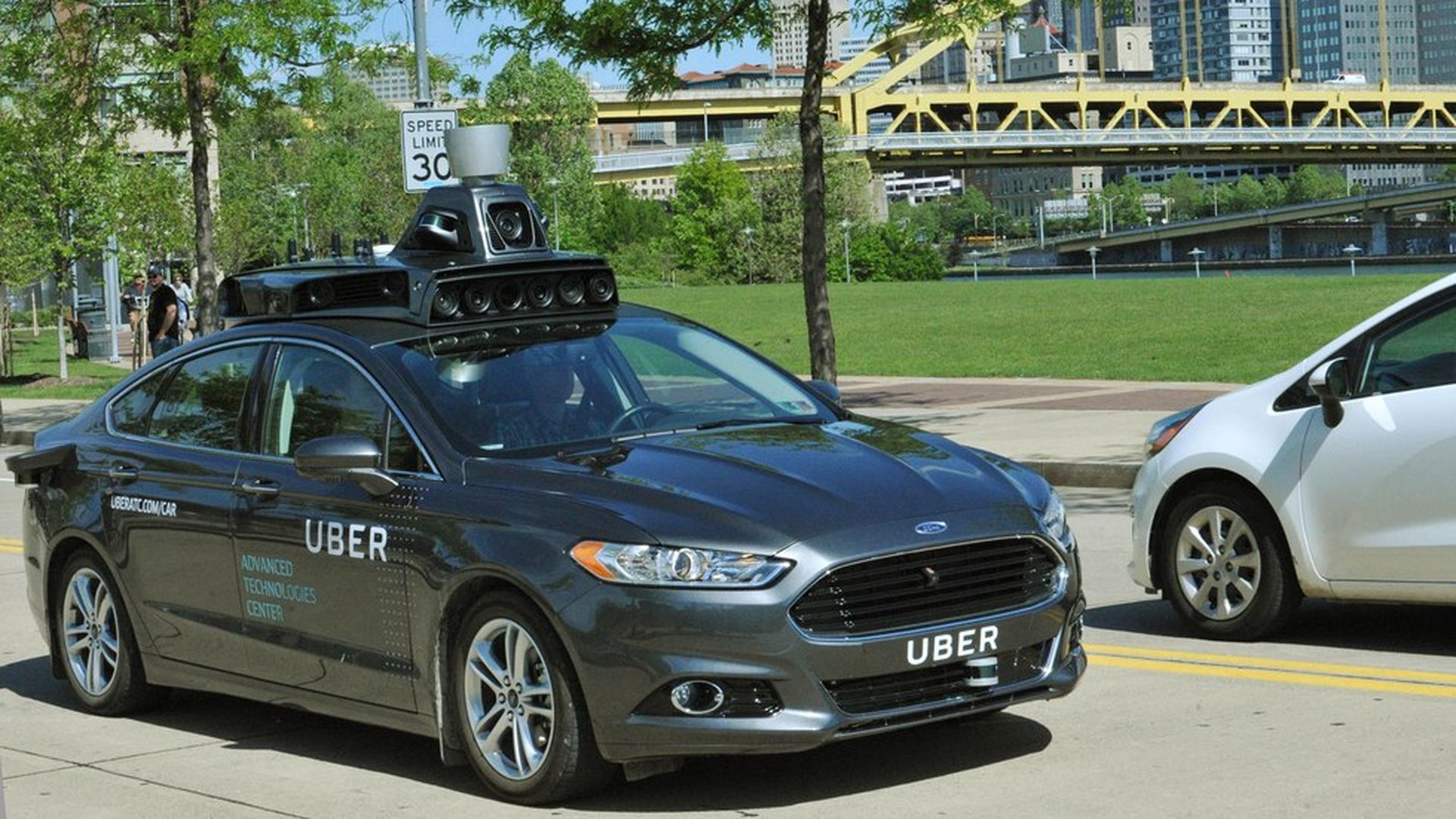Uber gets bruised, though not necessarily beaten, in court
Add Axios as your preferred source to
see more of our stories on Google.

Uber
Win or lose, Uber had a rough day in court Wednesday, in its dispute with Waymo, the former Google self-driving car unit.
Judge William Alsup appears likely to grant some sort of injunction, though it may be narrower than Waymo would like and could even be as simple as codifying things that Uber has already agreed to do. Uber, for example, has already agreed to remove Anthony Levandowski from responsibility for the company's LiDAR work until the case is concluded.
And, while it may or may not help it win an injunction, Waymo provided more evidence to support its contention that Uber was in contact with Levandowski before he left the former Google self-driving car unit on Jan. 27, 2016.
Why it matters: Today Uber is all about matching riders with human drivers. But the economics of its service look a whole lot better if it doesn't need humans behind the wheel. A broad injunction could slow its shift to self-driving cars or force it to look to other companies for the technology.
Among the pieces of evidence Waymo showed in court Wednesday:
- An October 2015 document that Waymo says shows Uber considering buying LiDAR technology from Levandowski's new company.A January 12, 2016 e-mail to former Uber (and Google Maps) executive Brian McClendon that Waymo says suggests Uber was negotiating LiDAR milestones with Levandowski, again before he had even left Waymo.A January 13, 2016 e-mail, with McClendon copied, that had an attachment discussing milestones for Levandowski's NewCo. The e-mail includes this text: "In sending, please tell Anthony that it is full of numbers all of which can and should be adjusted and negotiated by both of us over the next week. .... this list of deliverables is a high bar for sure. But then again so is what he is asking in $"
What first appeared to be the most damning evidence, though, may have a more innocent explanation. Waymo made much of the fact that Uber granted Levandowski 5 million shares of Uber stock, effective the day after he quit Google's parent company. However, Uber said afterwards that the stock grant wasn't issued until after Uber bought Otto and that the date was set to account for Levandowski's tenure with Otto. (something that isn't necessarily that uncommon in acquisitions.)
Uber partisans also took heart from the fact that Judge William Alsup's comments indicated he had yet to be convinced that Waymo had proven that Uber used any of its trade secrets. At one point, he declared that Waymo had yet to produce a "smoking gun" despite significant discovery in the case.
Waymo, meanwhile, claims it has been thwarted by the fact that Uber has claimed privilege on more than 3,000 documents and because Anthony Levandowski has asserted his Fifth Amendment rights and refused to testify.
